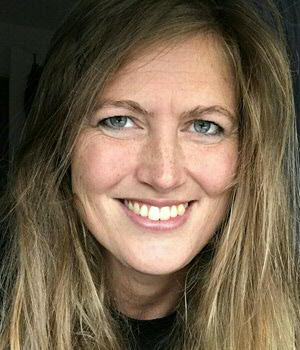Met stiltes de publieke opinie veranderen?
Sociaal psycholoog Namkje Koudenburg (1986) heeft een Early Career Award van de KNAW ontvangen. De onderscheiding is bestemd voor jonge onderzoekers die in staat zijn originele onderzoeksideeën verder te ontwikkelen. Koudenburg onderzoekt welke invloed de microdynamiek van conversaties heeft op de publieke opinie.

Gefeliciteerd! Je bent een goudhaantje, want voor je proefschrift kreeg je al diverse prijzen en onderscheidingen (aan de RUG en in het buitenland), je sleepte een Veni-subsidie in de wacht en nu dit. Wat denk je zelf waarom je al die prijzen en onderscheidingen krijgt?
Bedankt! Ik denk dat mijn onderzoek gewaardeerd wordt omdat mijn onderzoeksvragen relevant zijn voor verschillende vakgebieden (psychologie, communicatiewetenschappen, sociologie en politicologie), én omdat mijn focus en methodologie verrassend is. Ik richt me op heel subtiele eigenschappen van gesprekken (gespreksflow, stiltes) en laat zien dat die van belang zijn in het vormen van sociale structuren en het wijzigen van de publieke opinie.
Kun je dat wat verder toelichten?
Mensen zijn erg gevoelig voor signalen die mogelijk wijzen op een afwijzing of een verschil van mening. Mijn onderzoek laat zien dat veel van deze signalen niet liggen in wat er gezegd wordt, maar hoe iets gezegd wordt. Of een gesprek soepel loopt, bijvoorbeeld, is van cruciaal belang in het ontdekken of we op één lijn zitten en of onze relatie goed is. Valt er een stilte, dan voelen we een relationele dreiging en gaan we ons afvragen of we mogelijk iets verkeerd gezegd hebben.
Je richt je nu ook meer op polarisatie en publieke opinie. Wat heeft gespreksflow daar mee te maken?
Ik denk dat juist in het ontwikkelen van de publieke opinie de rol van subtiele signalen onderschat wordt. Neem bijvoorbeeld het Zwarte-Pietendebat. Men richt zich vaak op ‘de schreeuwers’ die heel luid en stellig een bepaalde mening verkondigen. Maar veel mensen hebben nog geen duidelijke mening over de kwestie en proberen in gesprekken door reacties van anderen erachter te komen wat die ervan vinden. Vaak kijken mensen dan niet alleen naar de inhoud van het gesprek, maar juist naar de subtiele indicaties van bevestiging of afwijzing. Geef ik mijn mening en blijft het stil, dan heb ik misschien iets verkeerd gezegd. Na zo’n korte stilte voelen mensen dat hun mening de relatie bedreigt en stellen ze hun mening bij om er toch bij te horen. Door heel veel van dit soort kleine gesprekjes samen kan door subtiele signalen van afwijzing of bevestiging een norm worden gecreëerd over wat juist is om publiekelijk te zeggen en wat niet.
Heb je vanuit je professionele inzichten een advies voor onze politici in deze dagen van protesten?
We onderzoeken nu de consequenties van het formuleren van standpunten die lijnrecht tegenover elkaar staan voor alledaagse gesprekken. Als je het gevoel hebt dat je òf voor, òf tegen Zwarte Piet moet zijn dan bemoeilijkt dat het open bespreken van oplossingen. Elke uitspraak die je doet over Zwarte Piet heeft dan de potentie om de relatie met anderen op spanning te zetten. Ik denk dat er ruimte ligt in de nuance, en dat politici hierin een voorbeeldfunctie kunnen hebben door minder de nadruk te leggen op verschillen tussen posities.
Wat betekent al die erkenning voor je?
Die erkenning is super! Mijn naam staat erop, maar het is natuurlijk het resultaat van heel veel mooie samenwerkingen: wetenschap is toch vooral teamwerk. Ik denk dat de erkenning erg helpt om te bevestigen dat onze methodiek (en de focus op subtiele signalen in gesprekken) waardevolle en relevante inzichten oplevert.
Meer informatie
- Namkje Koudenburg
- Early Career Award KNAW voor Namkje Koudenburg
Meer nieuws
-
17 februari 2026
Van ghostbuster tot rampenonderzoeker
-
03 februari 2026
‘Daar zit een goeie kop op’
-
20 januari 2026
Alcohol, appen en e-bikes
